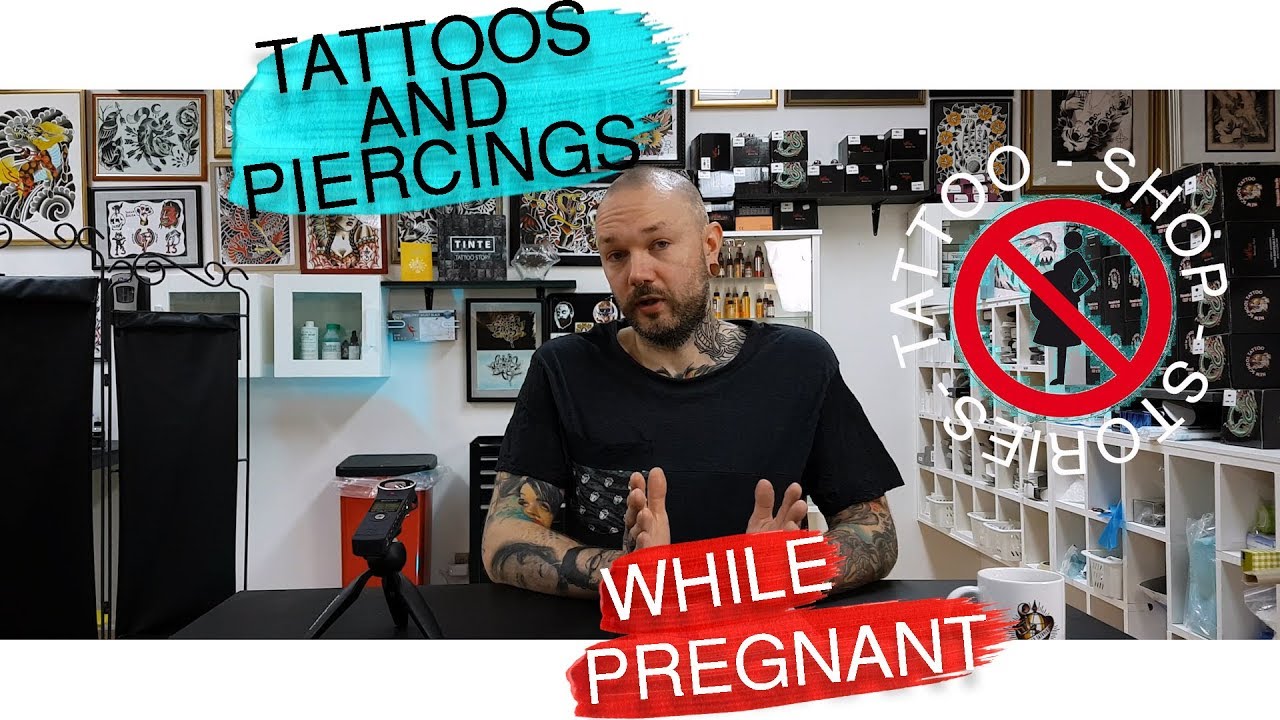The Safety of Getting Tattoos During Pregnancy: What You Need to Know
Create your own unique tattoos and art for your home
Many expectant mothers wonder about the safety of getting tattoos while they’re pregnant. Tattoos involve needles and ink, which introduce risks such as infection. This article breaks down what you need to know about tattoo safety during pregnancy, helping you make an informed decision.
Read on for key insights and expert advice!
Key Takeaways
- Expectant mothers should consult healthcare providers before getting tattoos during pregnancy due to the lack of research on safety and increased infection risks.
- It’s advised to wait until the second trimester for a tattoo, as this reduces potential risks to the fetus, though overall health concerns remain.
- Choosing a tattoo location that is less affected by skin changes in pregnancy and ensuring the use of sterile equipment at a reputable parlor can minimize complications.
- Tattoos may affect epidural placement and breastfeeding; pregnant women need to consider these possible impacts before getting inked.
- Tattoo removal during pregnancy also poses risks such as scarring and infection, highlighting the importance of professional consultation.
Risks and Concerns of Getting Tattoos During Pregnancy
Getting a tattoo during pregnancy poses potential risks such as the lack of research on safety, increased risk of infection, allergic reactions, skin changes and sensitivity, potential effects on epidurals, and reduced immunity.
These factors need to be carefully considered before deciding to get inked while pregnant.
Lack of research on safety
As you consider the safety of getting tattoos during pregnancy, it’s crucial to note there’s a significant gap in research. Scientists and doctors have not thoroughly studied how tattoo ink and processes affect pregnant women and their babies.
This lack of detailed studies means that health professionals can’t provide definitive answers about the risks or guarantees regarding the safety of tattoos while pregnant. They often err on the side of caution due to this uncertainty.
Tattoo artists may follow strict cleanliness protocols, but without solid research into the effects during pregnancy, even a clean needle doesn’t eliminate all concerns. Experts raise alarms over potential infections like Hepatitis B and HIV, which pose severe threats when your immune system is already adjusting to support fetal development.
Pregnant women might be more susceptible to these risks because their bodies are working overtime for two—this underscores why understanding what we don’t know is just as important as what we do when considering body modifications during this sensitive time.
Increased risk of infection
Despite the lack of specific research, it’s essential to note that getting a tattoo during pregnancy poses an increased risk of infection. Contaminated needles can potentially transmit serious infections such as Hepatitis B and HIV, raising concerns about maternal health and the safety of the baby.
Pregnant women should be aware that while there is a small actual risk of infection from getting a tattoo, this risk becomes heightened when expecting due to weakened immunity. It’s crucial for expectant mothers to consider these risks carefully before making any decisions regarding getting inked during pregnancy.
It’s important to understand that the heightened sensitivity and potential skin changes during pregnancy may increase the likelihood of complications related to tattooing, including allergic reactions and infections.
Allergic reactions
Allergic reactions to tattoo ink can occur, posing potential risks during pregnancy. The body’s immune response to the tattoo ink may lead to itching, redness, or swelling at the tattoo site.
Exposure to certain inks may also cause allergic contact dermatitis, resulting in a rash and discomfort. Among pregnant women, who already have heightened sensitivity due to hormonal changes, such reactions could be particularly concerning.
In some cases, allergic reactions to tattoo ink can prompt systemic symptoms like fever and malaise, adding further complications for an expecting mother. Given these potential risks of allergic reactions during pregnancy, consult with a healthcare provider before considering getting a tattoo while expecting.
Skin changes and sensitivity
Pregnancy can lead to significant changes in the skin, including increased sensitivity. This heightened sensitivity increases the risk of skin reactions and potential complications from getting a tattoo.
The texture and appearance of the skin may also change during pregnancy, which could affect the outcome of a tattoo. These factors should be carefully considered before deciding to get a tattoo while pregnant.
Considering these skin changes and sensitivities, it’s important to take into account how this may impact the healing process after getting a tattoo. Understanding these effects is crucial for making an informed decision about whether or not to proceed with getting inked during pregnancy.
Potential effects on epidurals
During pregnancy, if a woman has received a tattoo on her lower back, it may affect the placement of an epidural during labor. The presence of tattoos in the lower back area can make it challenging for healthcare providers to accurately administer an epidural due to potential interference with visibility and marking reference points.
Reduced accuracy in administering an epidural is plausible if there are tattoos around the lumbar region because markings become less discernible when navigating through inked skin, leading to potential delays or difficulties in pain management during labor.
Reduced immunity
Considering the potential effects on epidurals, it’s essential to acknowledge that pregnancy can lead to reduced immunity. This weakened immune system may increase the risk of infection during and after getting a tattoo.
Pregnant women with reduced immunity are more susceptible to various infections, which could further complicate the healing process of a new tattoo. Therefore, it’s crucial for expectant mothers to carefully weigh these considerations before deciding to get a tattoo during pregnancy.
In light of potential complications related to reduced immunity, pregnant women should prioritize their overall health and well-being when considering the safety of tattoos during pregnancy.
Can You Get a Tattoo While Pregnant?
Although there’s no definite rule on the safety of getting a tattoo while pregnant, it’s important to carefully consider the potential risks and consult with your healthcare provider before making a decision.
Lack of definite rule on safety
Research has not provided a clear-cut guideline on the safety of getting a tattoo during pregnancy, leading to an ambiguous stance. While there is limited specific research addressing this issue, experts do caution about potential risks, including infection and allergic reactions.
The lack of definitive information underscores the importance of carefully considering the potential health consequences before deciding whether to get a tattoo while pregnant.
It is important for expectant mothers to seek guidance from their healthcare providers when considering getting a tattoo during pregnancy due to the absence of concrete rules on its safety.
Importance of considering risks
Considering the potential risks is crucial before deciding to get a tattoo during pregnancy. Infections, allergic reactions, and skin changes are significant concerns that should be carefully weighed.
Pregnant women need to be aware of the increased risk of infection from contaminated needles, as this can lead to serious health complications for both mother and baby. Additionally, the heightened sensitivity of the skin during pregnancy may result in adverse reactions during and after the tattooing process.
When contemplating getting a tattoo while pregnant, it’s essential to consult with a healthcare provider to assess individual risks based on specific circumstances. Waiting until the second trimester when fetal development has progressed further may mitigate some potential risks associated with getting inked while expecting.
Safety Precautions to Take Before Getting a Tattoo While Pregnant
Before getting a tattoo while pregnant, it is important to consult with your healthcare provider, wait until the second trimester, consider the location of the tattoo, and thoroughly research the tattoo parlor.
Taking these precautions can help minimize potential risks and ensure the safety of both you and your baby.
Consult with healthcare provider
Before getting a tattoo during pregnancy, it’s essential to consult with your healthcare provider. Your provider can offer personalized advice based on your medical history and current health status.
They can also help assess the potential risks and provide guidance on making an informed decision. Consulting with your healthcare provider ensures that you are taking necessary precautions and prioritizing the well-being of both you and your baby.
It is crucial to prioritize communication with your healthcare provider before considering a tattoo while pregnant. Seeking their professional opinion helps in understanding any potential risks involved, enabling you to make an informed decision about whether getting a tattoo during pregnancy is right for you.
Wait until second trimester
It is advisable to wait until the second trimester before getting a tattoo during pregnancy. This is because the first trimester is a critical period of fetal development, and it’s best to avoid unnecessary risks during this time.
By waiting until the second trimester, any potential risks to the developing fetus may be reduced, although it’s important to remember that there are still general health concerns associated with receiving a tattoo while pregnant.
Taking this precaution allows for further progression through pregnancy and gives healthcare providers an opportunity to assess the overall health of both the mother and baby.
Waiting until the second trimester also provides more time for thorough consideration of potential health impacts; however, consulting with a healthcare provider remains crucial before making any decisions about getting a tattoo while pregnant.
Consider location of tattoo
When deciding to get a tattoo during pregnancy, consider the location of the design. Avoid areas where stretching or skin changes are common during pregnancy, like the abdomen and breast tissue.
Opt for locations less prone to change, such as the upper back or arms.
The consideration of location is important due to potential effects on skin sensitivity and scarring during both the tattooing process and any necessary removal procedures. Additionally, choosing a location away from areas with increased risk of infection can help reduce potential risks associated with getting a tattoo while pregnant.
Research tattoo parlor
Before getting a tattoo during pregnancy, it is crucial to thoroughly research the tattoo parlor. Ensure that the parlor follows strict hygiene standards and uses sterile equipment.
Look for a reputable establishment with licensed and experienced artists who prioritize safety. Check if the parlor maintains proper sterilization practices for needles and tools. Additionally, inquire about their measures to prevent infections, such as using disposable gloves and single-use ink containers.
It’s essential to choose a clean and professional environment when considering getting a tattoo while pregnant.
Important Considerations for Getting Tattoos During Pregnancy
Possible effects on breastfeeding and the risks of tattoo removal during pregnancy should also be taken into consideration before getting a tattoo while pregnant.
Possible effects on breastfeeding
Getting a tattoo during pregnancy may potentially have effects on breastfeeding. The ink from the tattoo could enter the bloodstream and find its way into breastmilk, although there is limited research on this specific issue.
As a result, healthcare providers often advise against getting tattoos while pregnant or breastfeeding to ensure the safety of both mother and baby.
Breastfeeding Women who have had recent tattoos should be vigilant for any signs of infection at the site, especially if there are issues such as redness, pain, swelling or discharge that do not resolve quickly.
Risks of tattoo removal during pregnancy
Tattoo removal during pregnancy carries potential risks, including increased skin sensitivity and the possibility of scarring. The skin’s heightened vulnerability during this period can lead to more significant skin reactions and possibly prolonged healing time after tattoo removal procedures.
Additionally, there is a risk of infection associated with any invasive procedure, which may pose an even greater concern during pregnancy due to reduced immunity.
Considering the potential risks involved, it’s crucial for individuals contemplating tattoo removal during pregnancy to consult with their healthcare provider to fully understand the possible implications on maternal and fetal health.
Conclusion
In conclusion, while it is possible to get a tattoo during pregnancy, there are added risks to consider. It’s important to weigh the potential health concerns and carefully consider the decision with your healthcare provider.
Prioritizing safety precautions and understanding the potential complications can help in making an informed choice about getting a tattoo while expecting. Always seek professional advice and take necessary measures before considering this permanent body art during pregnancy.
Your well-being and that of your baby are of utmost importance when making such decisions.
FAQs
1. Is it safe to get a tattoo during pregnancy?
It might not be safe to get a tattoo during pregnancy because of the risks, such as infections that can affect your reproductive health and the baby’s safety.
2. What are the main concerns about getting tattoos while pregnant?
The biggest concerns include potential complications like skin infections and the impact of stress on prenatal care, hence doctors generally advise against it.
3. Can pregnant women take precautions when getting tattoos?
Though some women consider taking extra precautions for getting tattoos during pregnancy, medical professionals recommend waiting until after the baby is born due to health risks.
4. What do health experts say about tattoos and pregnancy risks?
Health experts, including dermatologists and ob-gyns, warn about increased tattoo risks during pregnancy because of changes in skin and immune system reactions.
5. When is it safer for expecting mothers to consider getting inked?
Most professional opinions suggest waiting until after childbirth since timing plays a crucial role in minimizing any impacts on both mother’s and baby’s health.










